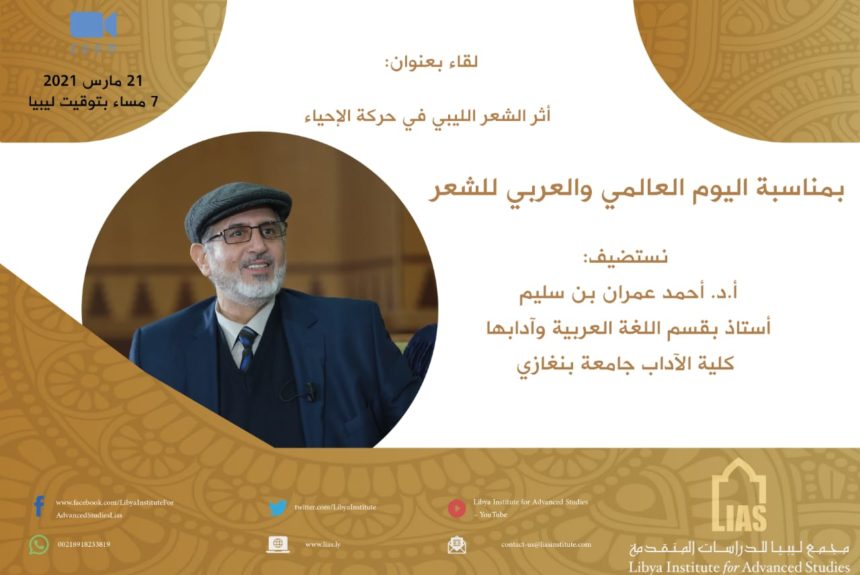On the occasion of International and Arab Poetry Day, March 21, 2021, we hosted on the Zoom platform: Prof. Dr. Ahmed Imran bin Salim
Professor in the Department of Arabic Language and Literature, Faculty of Arts, University of Benghazi.
The professor gave a lecture entitled: The Impact of Libyan Poetry on the Revival Movement.
He talked about an important historical introduction, then about the era of modern poetry, its renaissance, the wave of Arab poetry revival, the history of that, and whether this was caused by colonialism, contemporary movements, nationalist tendencies, or anything else.
The two most prominent elements of the revival: a return to the first sources of Arabic poetry, and the contemporary civilizational challenge.
Then he moved to Libya and its impact on revival, and that the poetic situation in Libya acquired a specificity, due to the isolation of Tripoli (Libya) – economic and scientific isolation, and the fact that it was the poorest of the Ottoman provinces at that time.
This made the regions preserve poetic traditions with their creativity. Pioneering poetic manifestations appeared in Cyrenaica through the Senusians, and in Tripoli a specific type appeared!
Calls for revival reached the country through fellow countrymen traveling to Egypt, and the connection was renewed.
He repeatedly emphasized that Libyan poets contributed to the revival with their sober poetry, even if their impact did not extend beyond the borders of their country, based on their authentic heritage.
He introduced some pioneering poets, such as: the literary poet Ahmed bin Shatwan, and the scholarly poet Abu Saif Muqarrab. He also presented pioneering poetic examples that indicate issues of renewal and revival in Libyan poetry and literature.
He stressed the need to work on producing Libyan poetry and presenting it in international and local forums with creativity and ability.


